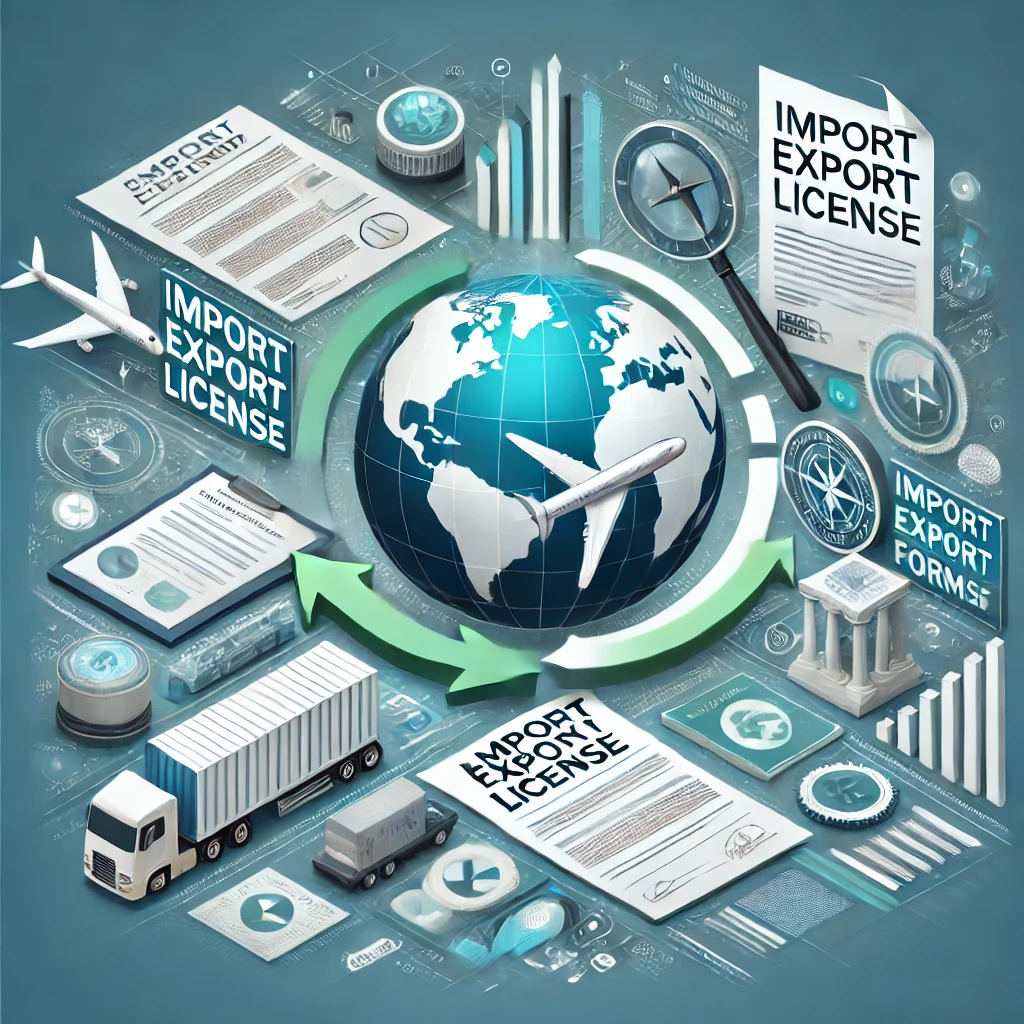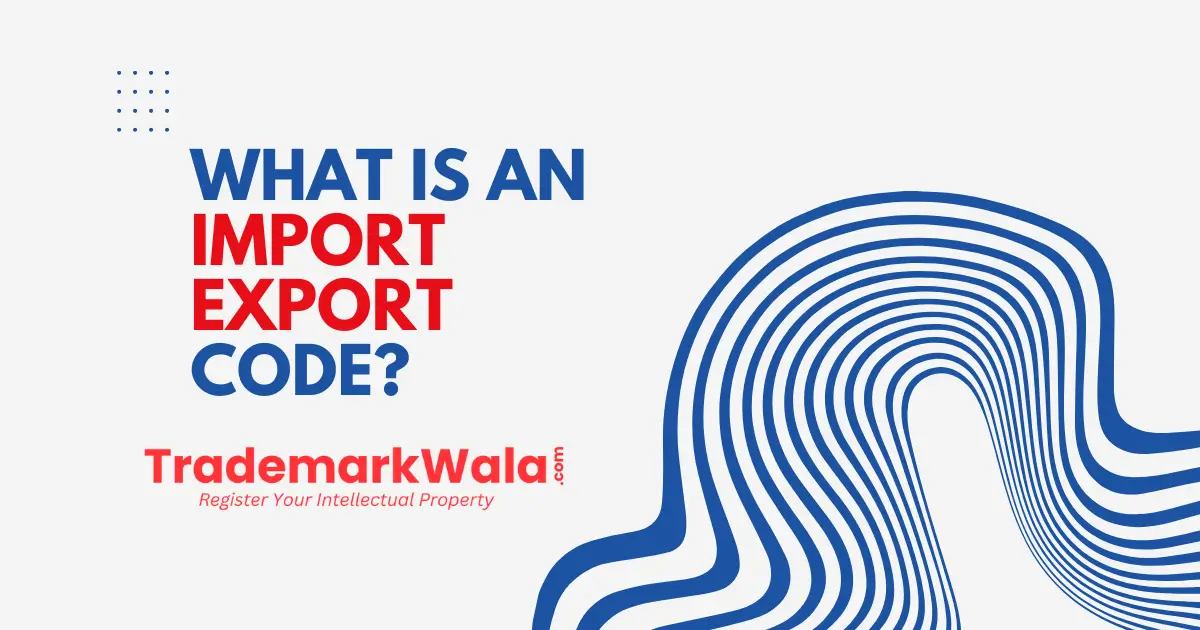Table of Contents
ToggleWhat is an Import Export Code? How to Register IEC?
In today’s competitive global marketplace, expanding business operations beyond domestic borders is increasingly essential for growth. Thanks to technological advancements and the internet, conducting business internationally is more accessible than ever. However, before diving into global trade, you must comply with various regulations and obtain necessary licenses. Among these, the Import Export Code (IEC) is a vital requirement for businesses aiming to engage in import or export activities in India.
Issued by the Director General of Foreign Trade (DGFT), the IEC is a 10-digit code with lifetime validity. Whether you plan to import goods into India or export products and services to foreign markets, having an IEC is mandatory. Without it, importers cannot clear shipments through customs, and exporters cannot avail benefits under government export schemes.
What is Import Export Code (IEC)?
The IEC, or Importer-Exporter Code, is a key identification number that facilitates international trade. It acts as a bridge for businesses entering the global market and ensures compliance with trade regulations. From clearing shipments to receiving payments in foreign currency, the IEC plays a critical role in seamless international transactions.
When Do You Need an IEC?
Understanding the scenarios where an IEC is required helps clarify its importance. Below are the situations where it becomes mandatory:
- For Importers:
- To clear shipments through customs authorities.
- When remitting funds abroad via banks.
- For Exporters:
- To dispatch shipments through customs ports.
- To receive foreign currency payments directly into bank accounts.
How to Apply for an IEC: Step-by-Step Guide
Obtaining an IEC is a straightforward process. Follow these steps to apply for it:
- Visit the DGFT Website: Start by accessing the official DGFT portal.
- Select ‘IEC Profile Management’: Navigate to the ‘Services’ tab on the homepage and choose this option.
- Register Your Profile: Provide necessary details and verify your identity via OTP sent to your registered mobile or email.
- Login and Begin Application: Use your credentials to log in, select ‘Apply for IEC,’ and start a fresh application.
- Fill in Details: Enter general information, proprietor/partner/director details, and bank information. Attach required documents and a Digital Signature Certificate (DSC).
- Make Payment: Submit the application fee. After successful payment, download the receipt for future reference.
- Receive Your IEC: Once approved, the IEC certificate will be emailed to you. Alternatively, log in to the DGFT portal to download it using the ‘Print IEC’ option.

Documents Required for IEC Registration
To apply for an IEC, you need the following documents:
- Copy of the applicant’s PAN card (individual, firm, or company).
- Identity proof (Aadhaar card, passport, or voter ID of the proprietor).
- Proof of business registration or incorporation.
- Address proof for the business premises (e.g., lease agreement, utility bill).
- Cancelled cheque from the current bank account.
- Self-addressed envelope for certificate delivery.
Read Meanwhile: Why Trademark Registration is Necessary in India?
Benefits of Obtaining an IEC
An IEC unlocks numerous benefits for businesses, making it an essential tool for those venturing into global trade:
- Business Expansion:
With an IEC, you can take your products or services to the global market, fostering growth and increasing brand recognition. - Access to Government Benefits:
Businesses registered with an IEC can avail various incentives, subsidies, and schemes provided by the DGFT, Customs, and Export Promotion Councils. - No Filing Requirements:
Once issued, the IEC does not require periodic filings or renewals, making it a hassle-free license for importers and exporters. - Lifetime Validity:
The IEC remains valid indefinitely, eliminating the need for renewals or additional compliance. - Streamlined Processing:
The application process for an IEC is simple and efficient. Typically, it takes 10-15 days from the date of submission to receive the code.
Exceptions to IEC Requirement
Certain situations exempt businesses from obtaining an IEC:
- GST-Registered Traders: The PAN of a GST-registered trader serves as their IEC for import/export purposes.
- Personal Use: Import/export of goods for personal, non-commercial purposes does not require an IEC.
- Government and Charitable Institutions: Departments, ministries, and specified charitable organizations are exempt from IEC requirements.
Conclusion
Acquiring an Import Export Code (IEC) is a crucial step for businesses planning to explore international markets. It not only ensures compliance with Indian trade regulations but also provides access to a wealth of opportunities and government benefits. By simplifying the process and maintaining its lifetime validity, the IEC serves as a valuable tool for fostering growth and facilitating seamless global trade operations. Whether you’re a budding entrepreneur or an established enterprise, obtaining an IEC is your gateway to international business success.
What is an Import Export Code, What is an Import Export Code, What is an Import Export Code, What is an Import Export Code, What is an Import Export Code, What is an Import Export Code, What is an Import Export Code




